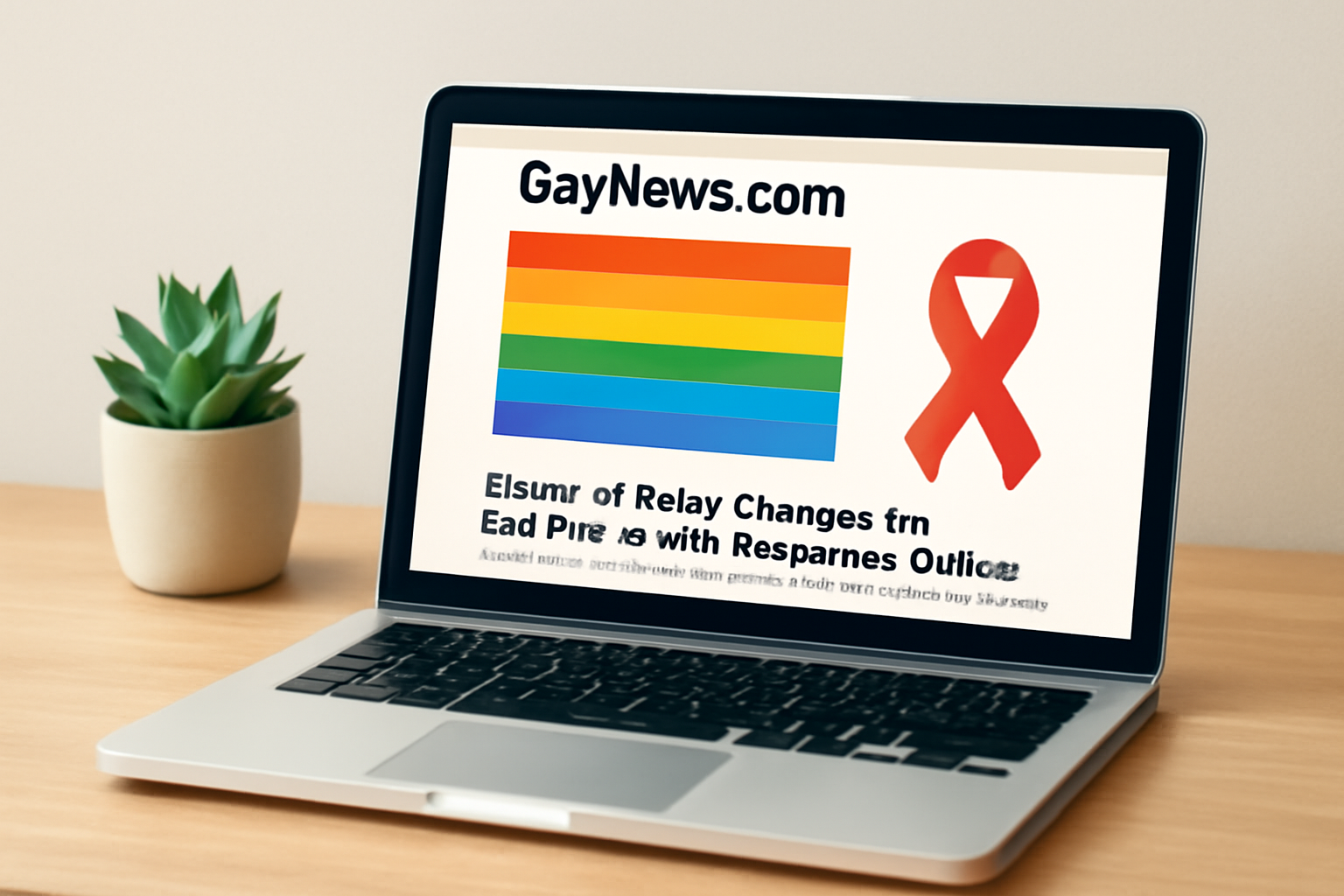
In recent years, there have been significant discussions and concerns regarding the availability of resources and information related to the LGBTQ+ community and HIV on government websites. These online resources have historically served as vital tools for education and support, providing essential information to individuals and communities across the nation. However, recent policy shifts and administrative changes have led to the removal or alteration of this content, raising significant concerns among advocates and community members.
A Decline in Accessible Information
One of the most noticeable changes has been the reduction of LGBTQ+ and HIV-related content on various government websites. This trend has been observed across multiple federal agencies, where previously available information and resources have been altered, relocated, or removed entirely. This has sparked a debate over the accessibility and visibility of critical support systems for a community that often relies heavily on such resources.
The implications of these changes are far-reaching. For many people, particularly those in marginalized communities or in areas with limited access to local resources, government websites serve as a primary source of information on health care, legal rights, and community support. The reduction of this information can lead to increased vulnerability and isolation.
Community Response and Advocacy
In response to these removals, various advocacy groups and community leaders have raised their voices, calling for the restoration and preservation of LGBTQ+ and HIV information on government platforms. They argue that the availability of this information is not only a matter of public health but also a reflection of the nation's commitment to inclusivity and equality.
These groups have engaged in a range of activities, from direct lobbying and policy advocacy to public awareness campaigns aimed at highlighting the importance of these resources. The goal is to ensure that critical information remains accessible to those who need it, regardless of changes in political administration or policy direction.
The Importance of Online Resources
The internet has become an indispensable tool for education and communication, particularly for the LGBTQ+ community. Online platforms offer a space for connection, support, and the dissemination of vital health information. This is especially true for HIV-related resources, which are crucial for prevention, treatment, and overall public health strategies.
When government websites do not provide comprehensive and accurate information, it can lead to misinformation and stigma, hindering efforts to combat HIV and support LGBTQ+ individuals. Ensuring that these resources remain available and up-to-date is essential for community well-being.
Looking Forward
As discussions continue around the availability of LGBTQ+ and HIV resources on government websites, there is a growing recognition of the need for a balanced approach that respects both policy directives and the needs of diverse communities. Advocates hope to see renewed commitments to transparency and inclusivity from government agencies, with an emphasis on restoring and enhancing access to important resources.
Ultimately, the goal is to foster an environment where all individuals, regardless of sexual orientation or health status, can access the information and support they need to live healthy and fulfilled lives. This includes ensuring that government websites continue to serve as reliable and inclusive sources of information for all communities.
By maintaining a commitment to visibility and accessibility, government institutions can play a vital role in supporting the health and well-being of LGBTQ+ individuals and those living with HIV, further contributing to a more informed and compassionate society.
Related Posts
Triumphant Trans Woman Wins Legal Battle and Inspires Others to Stand Up for Their Rights
Breaking new ground: a landmark victory in transgender rights After battling in courtrooms and enduring endless challenges, Diana Portillo, a transgender woman, has secured a monumental victory in her decade-long fight against workplace discrimination. The result? Nearly $1 million awarded in a historic settlement. But this isn't just a win on paper—it represents a powerful precedent in combati [...]
Pride Month in Latin America: Protests and Demands for Equality
**Celebrating Pride and advocating LGBTQ+ rights in Latin America** Pride Month in Latin America was a lively mix where celebration met activism. Communities united, not just throwing a party but making a stand—demanding equality and pushing governments toward better protection and rights recognition. Throughout Latin America, pride events erupted in marches and cultural displays, each with a c [...]
Transgender Erasure Actions Implemented by National Park Service
```html Trump administration's impact on national park service and transgender recognition The Trump administration made notable moves in undermining transgender representation, which included directing agencies like National Park Service not include "T" and "Q" when they refered “LGBTQ” in any official communication. This move seems part a broader plan by this administration aimed at reducin [...]